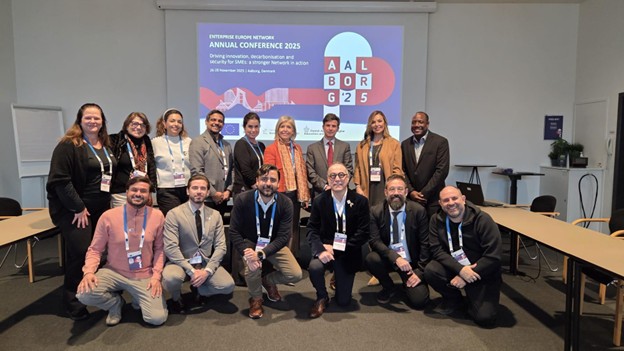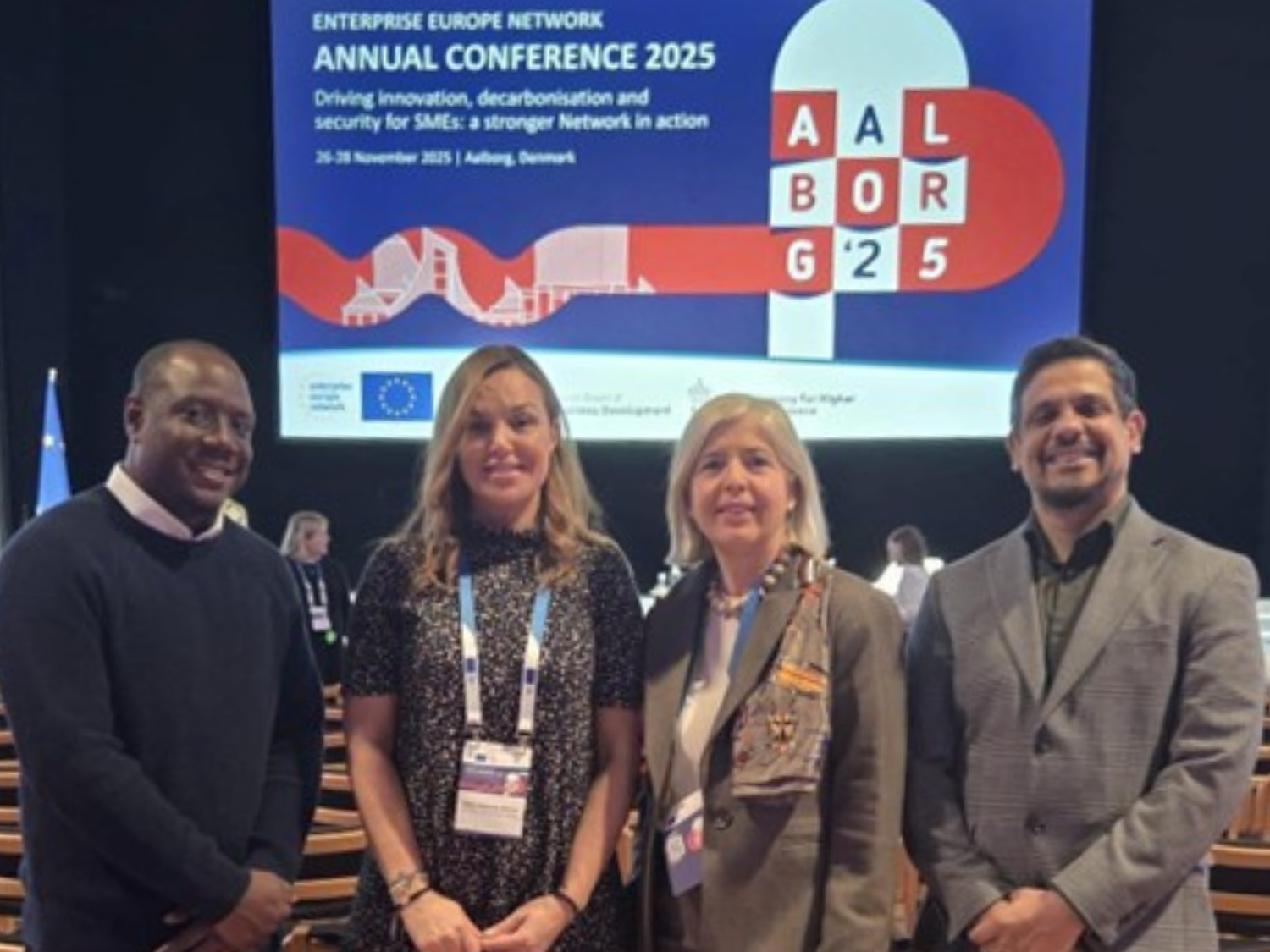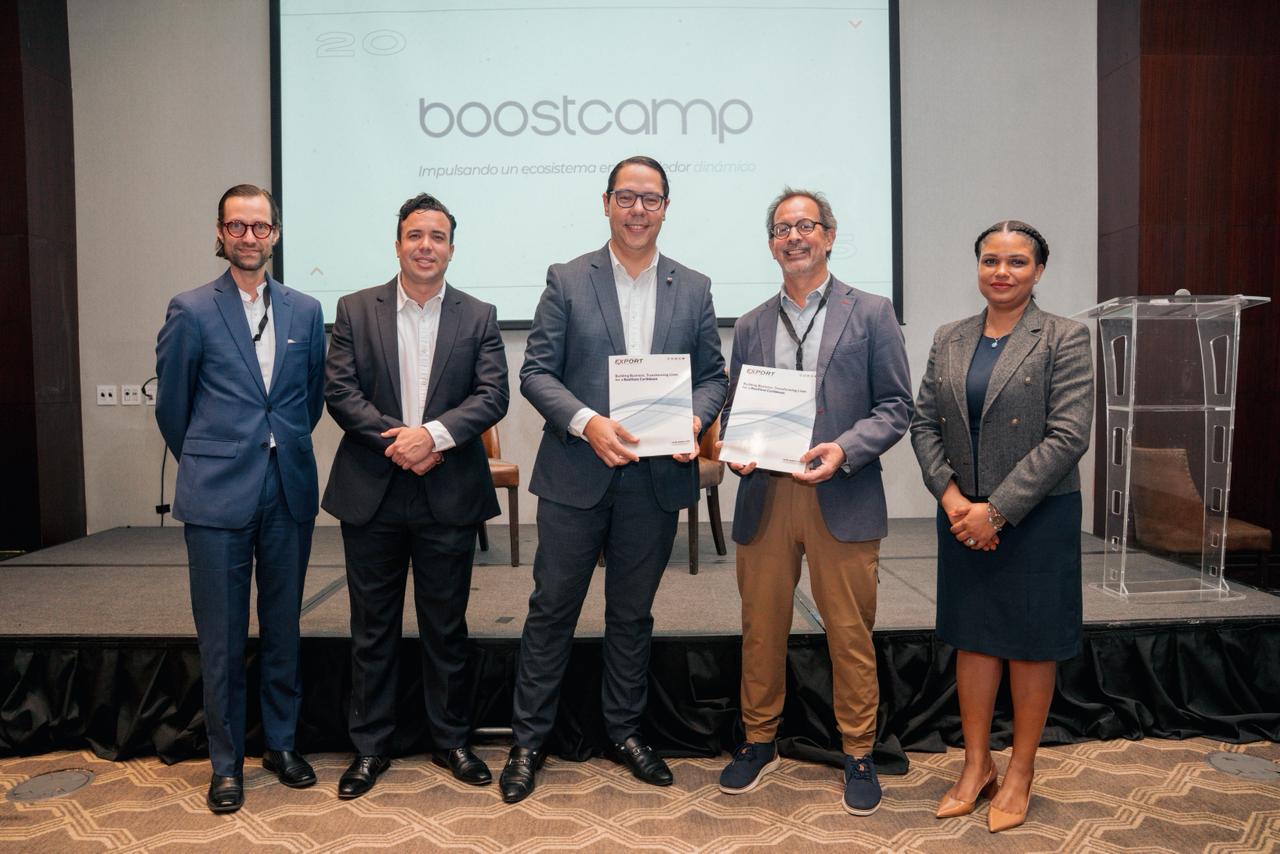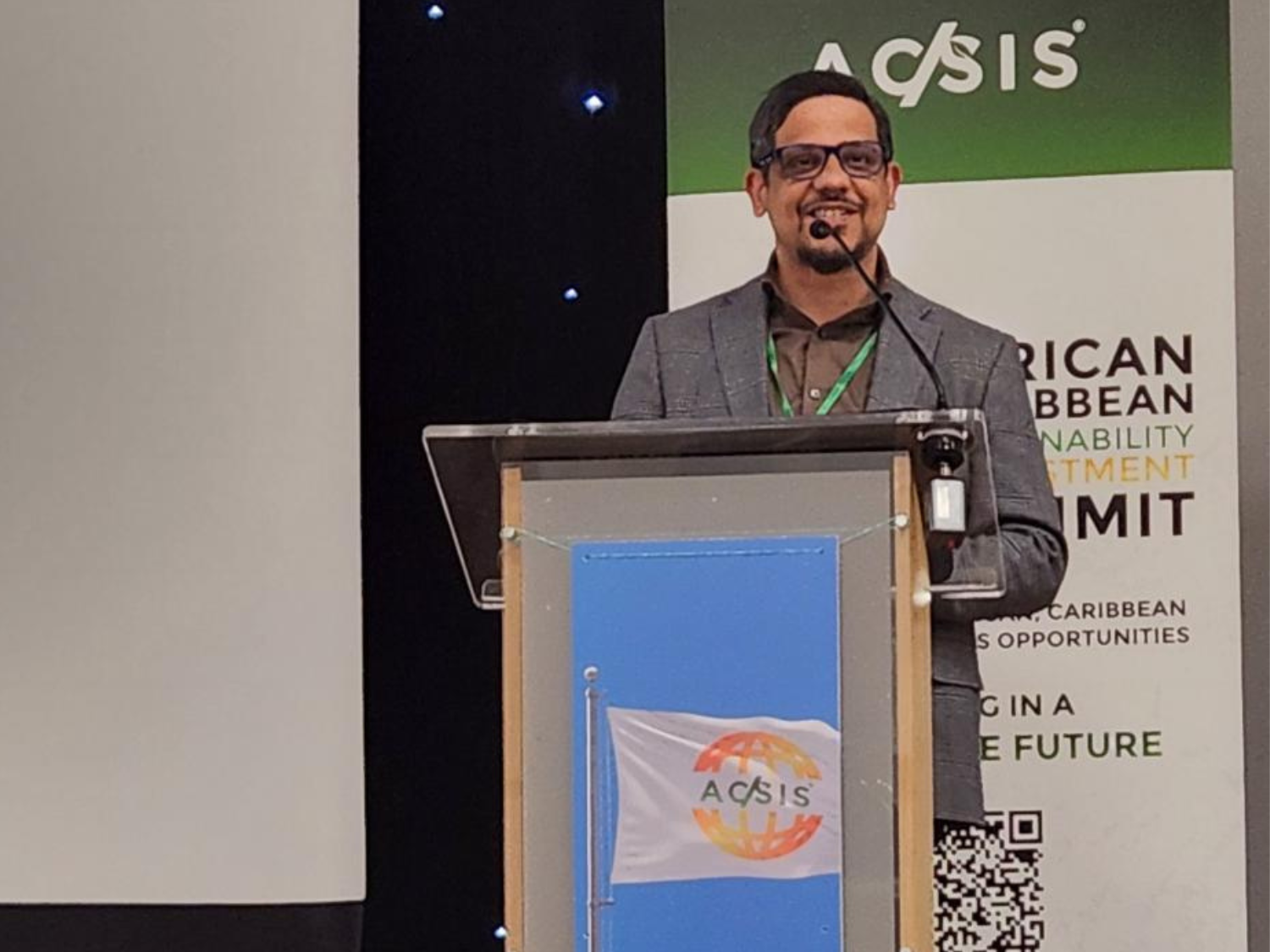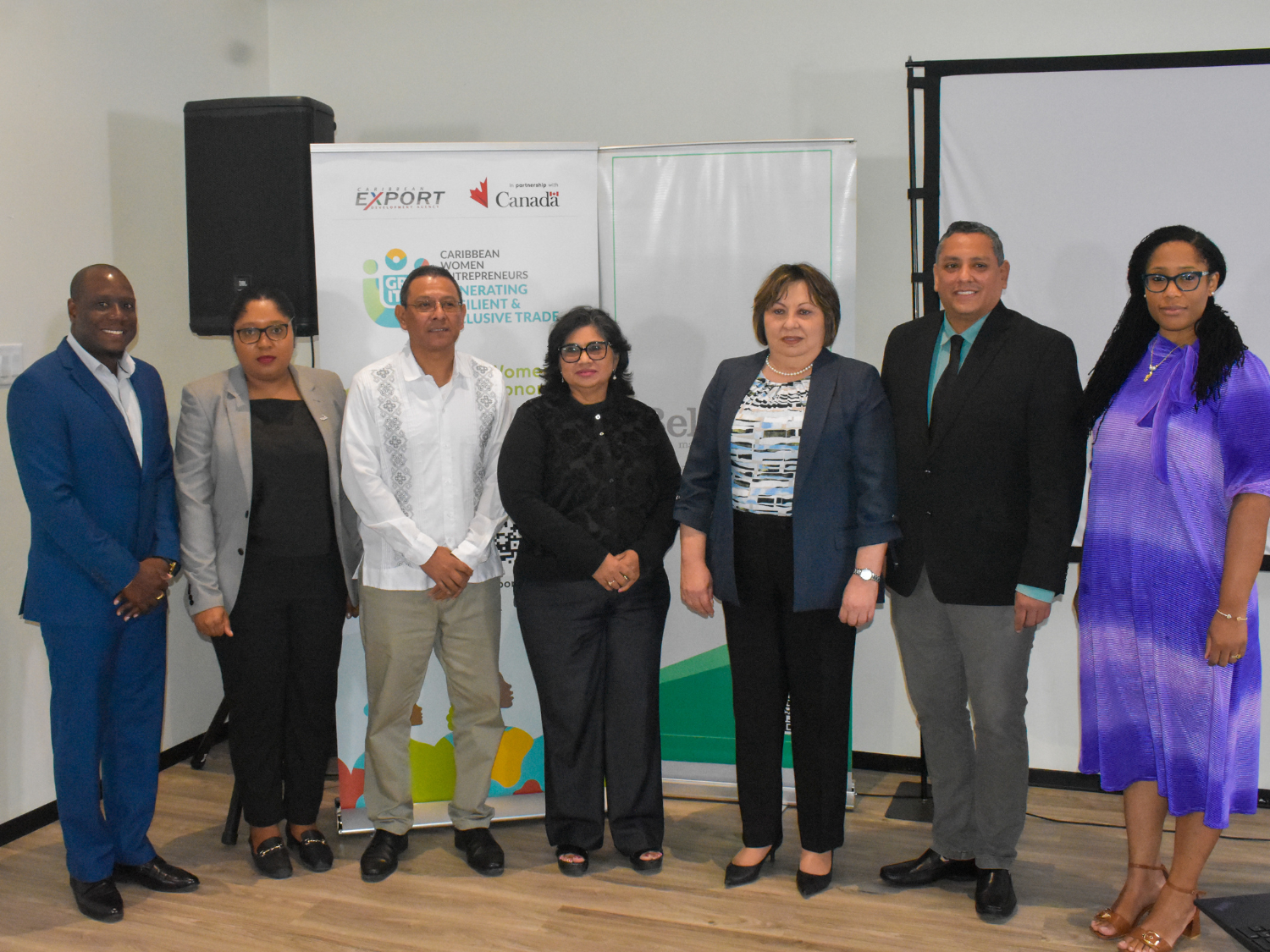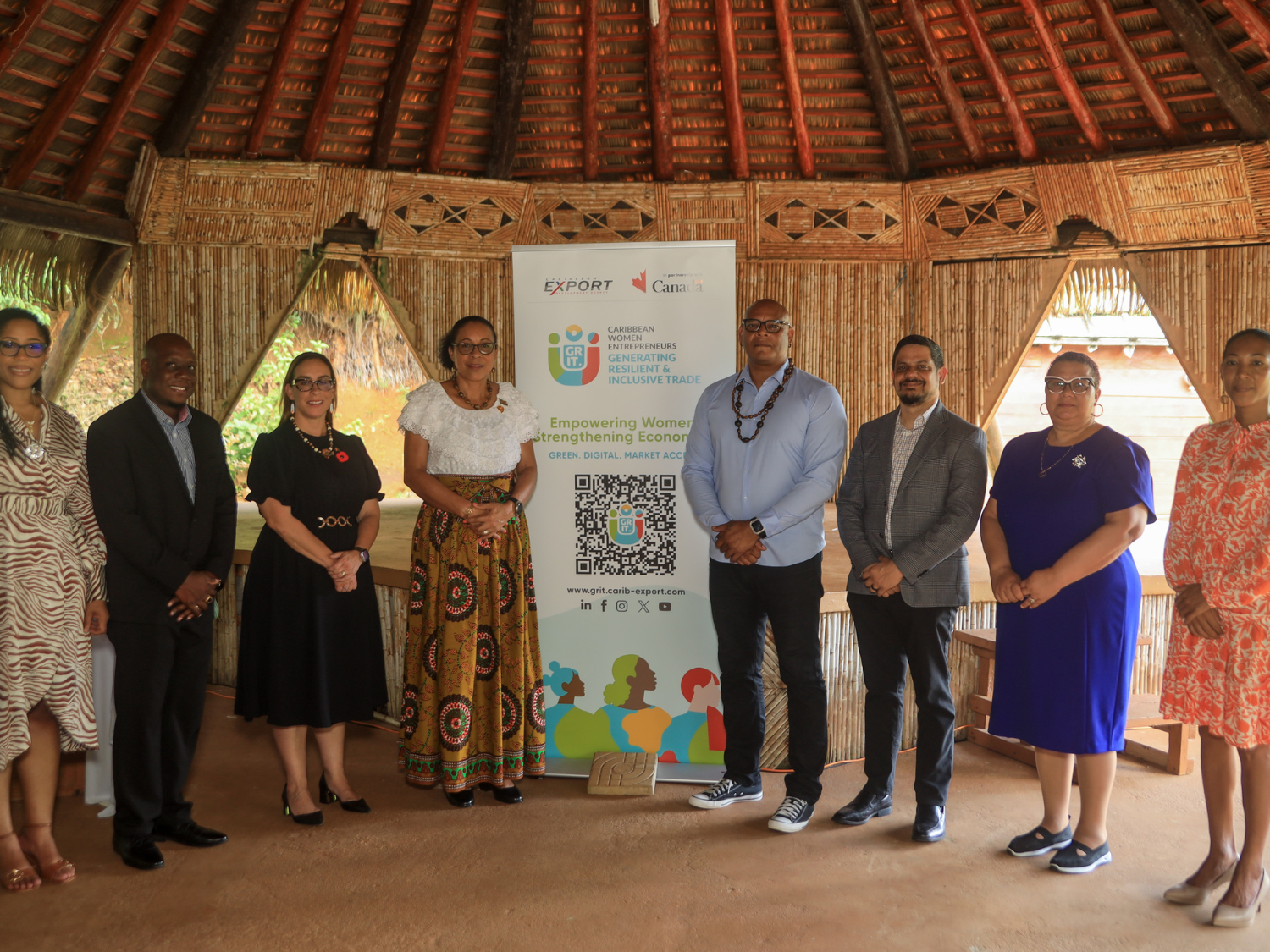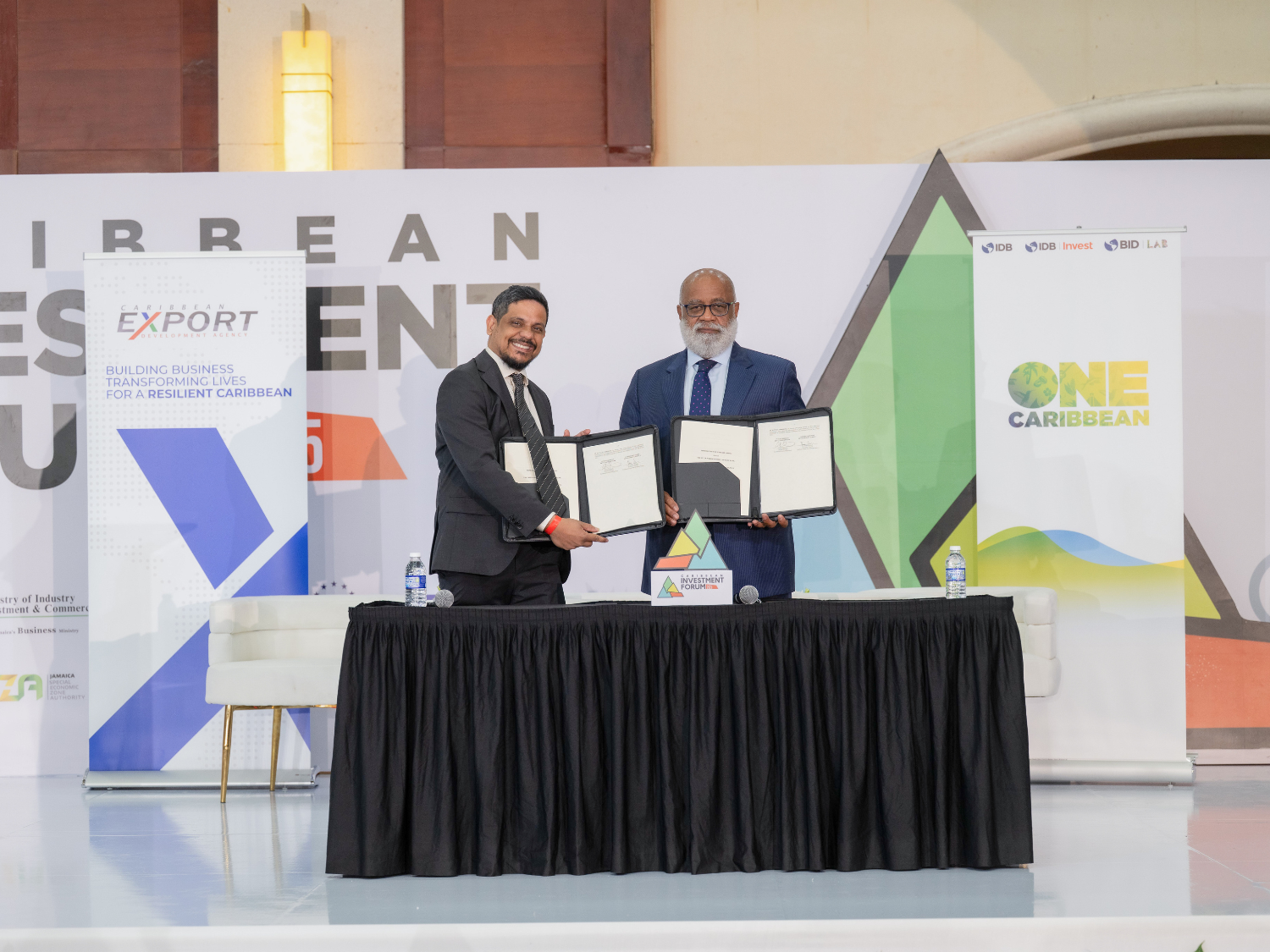The Caribbean Export Development Agency (Caribbean Export) has formally joined the Enterprise Europe Network (EEN) as an International Network Partner, strengthening business and innovation ties between the Caribbean and Europe and opening new channels for both European and Caribbean firms to access partnerships, market intelligence, and investment opportunities.
Caribbean Export marked this milestone through participation at the Enterprise Europe Network Annual Conference 2025, held 26–28 November 2025 at the Aalborg Kongres & Kultur Center in Aalborg, Denmark, where the Agency engaged EEN partners and stakeholders from across the globe to establish strategic linkages that will translate into concrete opportunities for enterprises from both geographic regions.
The EEN is widely recognised as the world’s largest support network for small and medium-sized enterprises (SMEs) with international ambitions, connecting business support organisations and experts to help companies innovate, scale, and grow across borders.
A stronger bridge between Caribbean businesses and Europe
As the regional trade and investment promotion agency for the 15 CARIFORUM member states, Caribbean Export’s participation in the EEN is designed to expand practical support to Caribbean SMEs and startups seeking to internationalise, particularly into Europe, while also helping European companies identify credible partners and investment opportunities in the Caribbean.
This two-way relationship means that European firms will also benefit from more structured access to the Caribbean market. Through Caribbean Export and the EEN, European companies will be able to connect with vetted Caribbean partners and suppliers, explore nearshoring opportunities, and identify pipeline projects in high-potential sectors such as renewable energy, sustainable tourism, agribusiness and the digital economy. They will be supported with tailored partner searches, sector briefings, and facilitated B2B engagements that reduce risk and shorten the time it takes to build reliable, long-term business relationships in the region.
Dr. Damie Sinanan, Executive Director of Caribbean Export, who attended the conference alongside Wayne Elliott, Manager Technical Programmes, noted that joining the Network is about converting relationships into results:
“This partnership places Caribbean firms closer to European buyers, investors, and innovation partners. Through the Enterprise Europe Network, we will accelerate business matchmaking, strengthen export readiness, and drive new collaborations that help Caribbean companies compete and win in global markets.”
What joining the EEN means for the Caribbean’s private sector
Membership in the EEN gives Caribbean Export and its stakeholders access to a structured platform that supports companies at every step of their internationalisation journey. For Caribbean firms, this translates into:
- Business matchmaking and partner searches to connect Caribbean companies with European buyers, distributors, technology providers, and collaborators.
- Market intelligence and advisory support to help firms navigate standards, regulations, and market entry requirements—particularly for the EU Single Market.
- Support to leverage the EU–CARIFORUM Economic Partnership Agreement (EPA) by strengthening firms’ understanding of practical trade facilitation considerations and export strategy.
- Innovation, sustainability, and digitalisation support, helping SMEs adopt stronger business models, greener production methods, and digital tools that improve competitiveness.
- Investment promotion linkages, positioning the Caribbean as an attractive destination for European investment—especially in priority areas such as sustainable agriculture, renewable energy, and the digital economy.
How Caribbean Export will deliver EEN services in the region
To ensure equitable reach across the region, Caribbean Export will implement a “hub-and-spoke” delivery model, coordinating regionally while working with national business support organisations, chambers of commerce, and sector partners to take services closer to firms in every CARIFORUM country.
Caribbean Export will also help local businesses develop and promote partnership profiles through EEN channels, and will co-create missions, events, and B2B engagements aligned with the region’s priorities, including agri-food, renewable energy, and digital transformation.
On the European side, the Agency will collaborate with EEN partner organisations to design joint activities, share market intelligence, and support companies seeking to establish or deepen their presence in the Caribbean.
A catalyst for trade, investment and resilience
In a global environment where SMEs face rising costs, new regulatory requirements and rapid technological change, the Caribbean’s competitiveness depends on its ability to connect, innovate and scale. Joining the Enterprise Europe Network is expected to:
- Increase export opportunities through better buyer discovery, improved compliance, and stronger market entry strategies.
- Attract quality investment by showcasing bankable Caribbean opportunities and facilitating investor engagement.
- Build innovation partnerships that support new products, improved production methods, and technology adoption suited to small island and developing economies.
- Improve SME resilience and competitiveness, especially for women- and youth-led enterprises and businesses in smaller territories.
For European partners, the relationship also offers a pathway to diversify sourcing, expand into dynamic emerging markets, and collaborate on solutions that advance shared priorities such as climate resilience, digital transformation and sustainable growth.
Ultimately, the partnership is about more than numbers. It is about embedding Caribbean businesses into global value chains in a way that creates jobs, builds skills, and supports a more resilient and sustainable regional economy.
